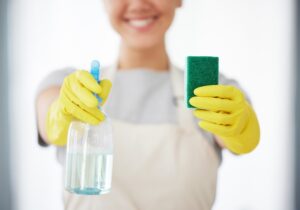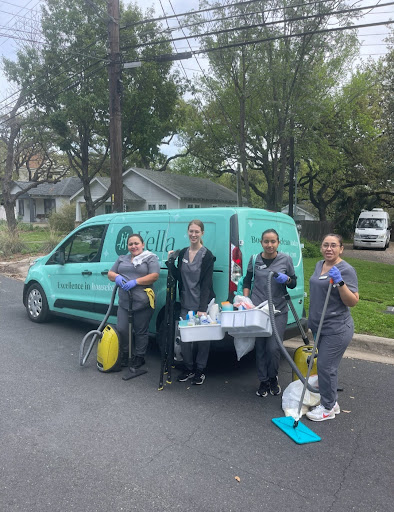Getting Rid of Odor from Shower Drains: A step-by-step guide

A smelly shower drain can make an otherwise clean bathroom unpleasant. Whether the smell is musty, rotten, or sewer-like, eliminating bad smells in bathroom drains is a common problem. The good news is that removing these odors isn’t as complicated as it may seem.
This guide will help you identify the causes, clean effectively, and prevent those odors from returning.
Why Do Shower Drains Smell?
Before solutions, we need to understand why these foul smells occur. A dirty smell from your shower drain occurs usually due to one (or several) of the following reasons:
1. Bacteria and Mold Growth
Bathrooms naturally contain humidity, thus being an ideal breeding ground for bacteria as well as mold. Over time, bacteria will feed on soap scum, hair, and other organic debris in the drain that tends to produce foul-smelling gases.
2. Clogs and Accrued Debris
A clogged drain does not only slow down the flow of water; it also traps materials that are decomposing. Soap residue, dead skin cells, and hair combine to create a blockage that emits a foul odor when bacteria break it down.
3. Dry P-Trap
The P-trap is the U-shaped pipe under the drain that holds a small amount of water to block sewer gases from coming up. If the shower hasn’t been used for a while, the water may evaporate, allowing unpleasant smells to escape into the bathroom.
4. Plumbing System Issues
If none of the above seems to be the culprit, your plumbing system may have an issue. Problems like poor ventilation or a broken seal in the drain pipes can cause sewer gases to leak into your home.
Tools and Supplies Needed for Shower Drain Cleaning
To effectively get rid of bad smell in bathroom drains, gather the following supplies:
Essential Cleaning Tools:
- Rubber gloves
- Drain snake or wire hanger
- Baking soda
- White vinegar
- Boiling water
- Bucket
Optional Tools for Tough Clogs:
- Enzyme-based drain cleaners
- Specialized drain brushes
- Plunger
Gather these drain cleaners and learn more about the safety tips before starting the process.
Safety Tips
Given below are a few safety measures to ensure during shower drain cleaning:
● Wear gloves to protect your hands from grime and bacteria.
● Avoid using chemical drain cleaners, as they can damage pipes. Opt for non-toxic cleaners from Branch Basics.
● Always pour hot water carefully to avoid burns.
Step-by-Step Guide to Getting Rid of Shower Drain Odor
Step 1: Inspect the Drain
- Remove the drain cover and check for visible hair, soap scum, or other debris.
- Look for black slime or grime. This usually means bacterial growth in the pipes.
- The smell could be a symptom of a bigger problem in the pipes if it’s really strong.
Step 2: Remove Surface Clogs
- Use a drain snake or a wire hanger to grab and pull out hair or gunk.
- Dispose of the debris in a trash bin; don’t pour it back down the drain.
- Pour hot water down the drain to clear any remaining loose particles.
Step 3: Clean the Drain with Natural Solutions
- Pour ½ cup of baking soda directly into the drain.
- Follow it with 1 cup of white vinegar. You’ll hear fizzing—this means the mixture is working.
- Wait 15 minutes before flushing the drain with boiling water.
Step 4: Address Persistent Smells with Deep Cleaning
- If odors persist, use an enzyme-based drain cleaner to break down organic buildup.
- Check if the P-trap is dry—if so, pour a few cups of water down the drain to refill it.
- If the issue continues, it may be time to inspect your home’s ventilation system.
Preventing Shower Drain Odors in the Future
Regular maintenance will help foul smell from coming back. Here is how you may maintain a clean odorless drain:
1. Cleaning the Drain Weekly
● Pour hot water every week to prevent buildup.
● Monthly use of baking soda mixed with vinegar can dissolve residue.
2. Use of Drain Strainers
● A hair catcher or drain strainer can prevent clogs.
● Clean the strainer regularly to prevent debris from piling up.
3. Control Moisture Levels
● Install a bathroom fan or dehumidifier to minimize moisture.
● Keep the shower door open after each use for ventilation.
4. Avoid Harsh Chemicals
● Regularly using chemical drain cleaners may cause pipe corrosion.
● Use natural solutions or enzyme-based cleaners to avoid harsh chemicals for safer maintenance.

Common Mistakes to Avoid When Cleaning the Shower Drain
Even with the best of intentions, some common mistakes can worsen the situation:
1. Overlooking Minor Clogs
● When left unaddressed minor clogs become severe blockages.
● Clear small build-ups before they become serious issues.
2. Using too many Chemical-based Cleaners
● Chemical cleaners eat away into pipes with time. Use them in moderation.
● For long-lasting pipes use chemical-free cleaners.
3. Not checking the P-Trap
● If you notice sewer odors, inspect the P-trap to ensure it isn’t dry.
● Pour water into the drain to fill the P-trap and create a proper seal that blocks odors.
4. Not using professional help
● If odors continue to linger after cleaning, it could be a sign of plumbing issues.
● Immediately seek professional help to avoid damage in the long run.
Make sure to add inspecting your shower drains to your weekly deep cleaning schedule to avoid major issues in the long run. Regular cleaning can help save time and effort.
DIY vs. Professional Drain Cleaning: What’s Best?
DIY solutions for cleaning the sewer are cost-effective as you only need household products to get the job done. But they only work for minor odors and clogs.
When to Call a Professional
If the following applies to you, we think you need to call a professional:
● If odors continue to come back after cleaning.
● When water pools in the shower due to a severe clog.
● When you suspect an issue with your plumbing system other than the drain.
Benefits of Professional Services
Here’s why professional services are better than DIYs :
● Experts use specialized tools for deep cleaning.
● Professional inspections help identify underlying issues before they worsen.
Why Vella for Shower Drain Cleaning Services

Vella’s staff in Dallas and Fortworth are specialized in flushing out persistent odors and blockages. They ensure that your drains are thoroughly cleaned. Our team uses eco-friendly solutions that knock out bacteria, grime, and buildup without damaging your pipes.
Unlike DIY methods, our professionals offer the following:
● Deep cleaning services for long-term odor prevention
● Expert plumbing inspections to identify hidden problems
● Safe and effective techniques that can protect your home’s drainage system.
If you have been experiencing persistent shower drain odors, Vella’s cleaning experts can take care of it. Book a consultation today.
Keeping It Spick and Span
Getting rid of bad smells in bathroom drains doesn’t have to be complicated. Follow this shower drain cleaning guide to remove odors, prevent future buildup, and keep your bathroom fresh. Small steps and tips done regularly can ensure a tidy and fresh home.
For persistent or recurring odors, consider reaching out to Vella’s professional cleaning services for long-lasting results.